On Veterans Day, Vietnam War combat artist still inspired by ‘ultimate assignment’
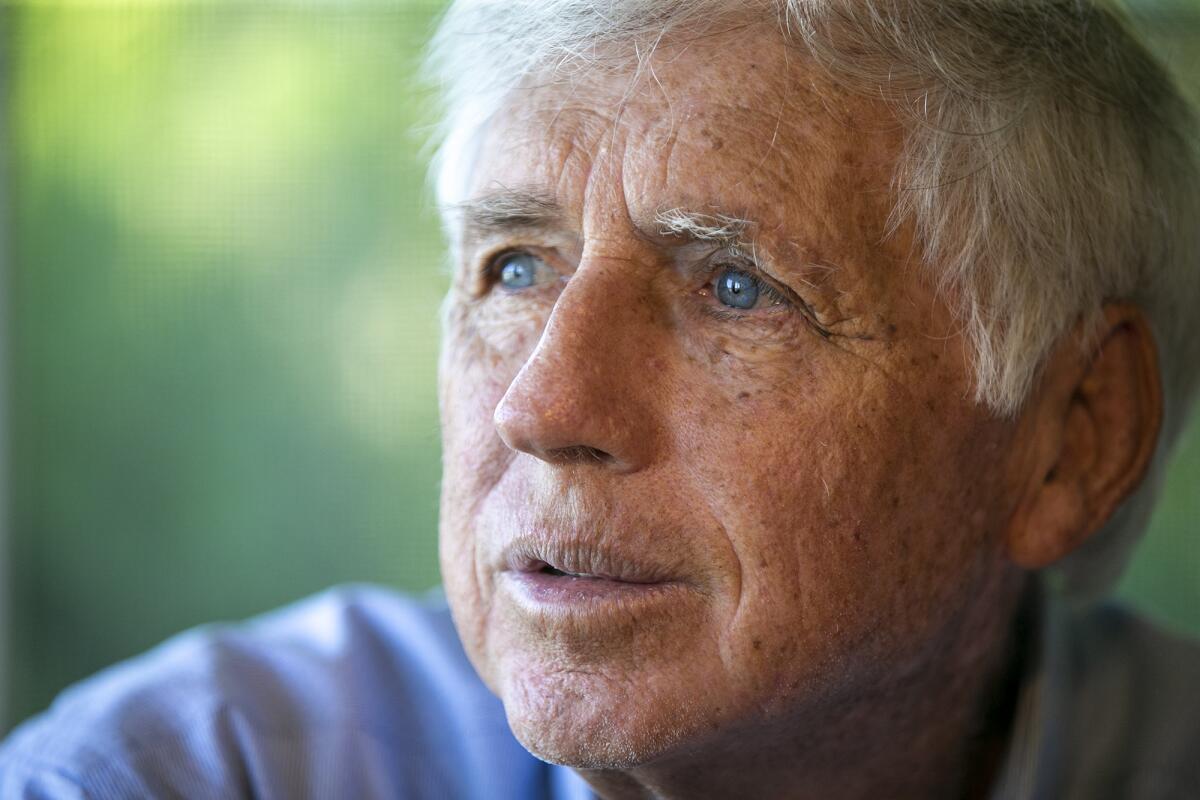
- Share via
Ed Bowen recalls teaching art classes at Villa Park High School in Orange in 1967 when rumors began circulating the U.S. would draft citizens to fight in Vietnam. At 26, and ripe for the picking, he wasn’t too concerned.
Since his parents had come to Corona del Mar from Canada when he was a child, he figured his foreign residency precluded him from having to register for the draft. Plus, he was working a plum job; he loved art and the kids loved him.
It wasn’t until he received a letter in the mail, informing him he was to report for duty with the U.S. Army on Nov. 28, that he realized how wrong he’d been.
“I had to say goodbye to the kids — my dream was shattered,” he recalled. “But, as I say now, the Lord had other plans, and he was to take me to the ‘ultimate assignment.’”
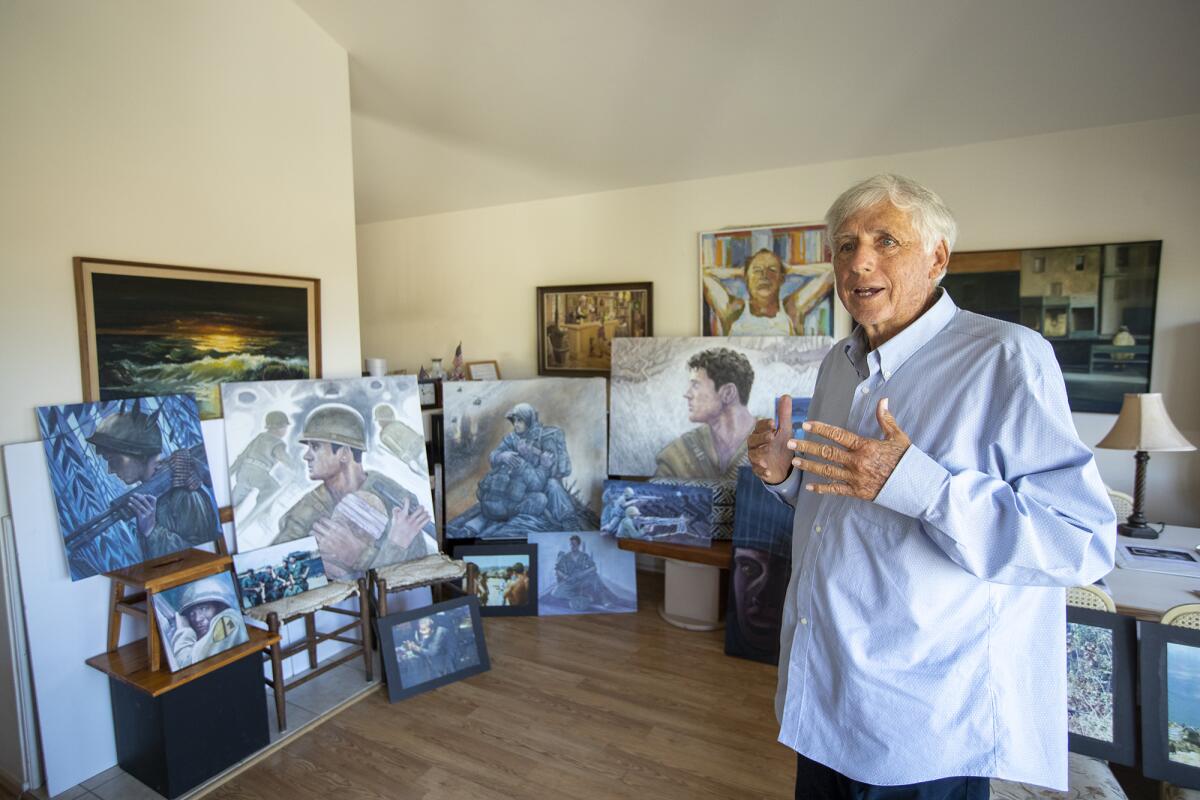
What happened next would begin an incredible journey that would take Bowen to some of the most perilous stages of the Vietnam War where, armed with only a sketchpad and pen, an Instamatic camera and a Colt .45 revolver, he would fulfill a mission to capture the conflict in pictures.
As one of 46 combat artists serving in the Army, Bowen was on one of nine teams of artists charged with creating field sketches over a two-month term of service.
Artists were afterward taken to a base in Hawaii and given three months to create larger works documenting battlegrounds, villages and scenes of daily life that would become property of the U.S. government.
Bowen, now 78, says his being reassigned to serve as a military artist likely saved his life. After completing basic training at Ft. Ord in Monterey Bay, he was slated to be a helicopter door gunner, an assignment with an unusually high mortality rate.
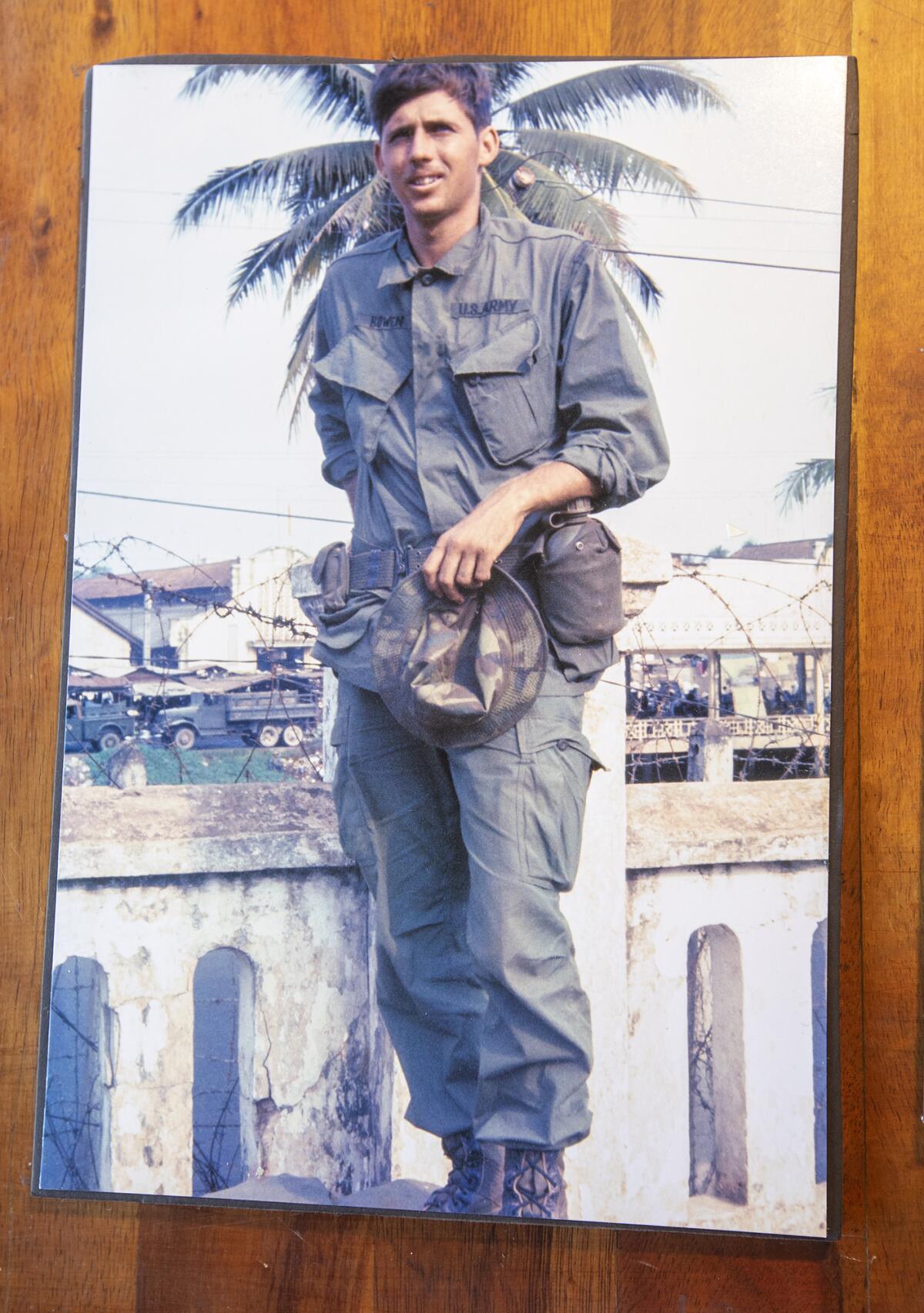
“We were told when we got to the school this was your death sentence,” he said in an interview Monday in his Corona del Mar home.
But, when he went to test for the position, he failed miserably. A learning disorder he’d managed to overcome in his studies and professional life appeared with glowing clarity during a battery of exams. Higher ups began eyeing him for the infantry, an equally hazardous post. A young Bowen was scared and riddled with doubts about his future.
That’s when a first sergeant — who’d ominously greeted new soldiers by informing them they would likely die in combat and needed to “be prepared to honor your county by dying” — learned of his penchant for art and tasked him to sketch a helicopter battle to see if he had any talent.
That test he passed with flying colors. A review board selected him to serve as a combat artist.
“This was a God thing,” is the only explanation Bowen has to offer 54 years later. “He rescued me. I would probably be dead if it weren’t for that.”
Combat artistry dates back to at least the Civil War, during which a young Winslow Homer famously traveled and lived with soldiers, sending sketches by mail as a war correspondent.
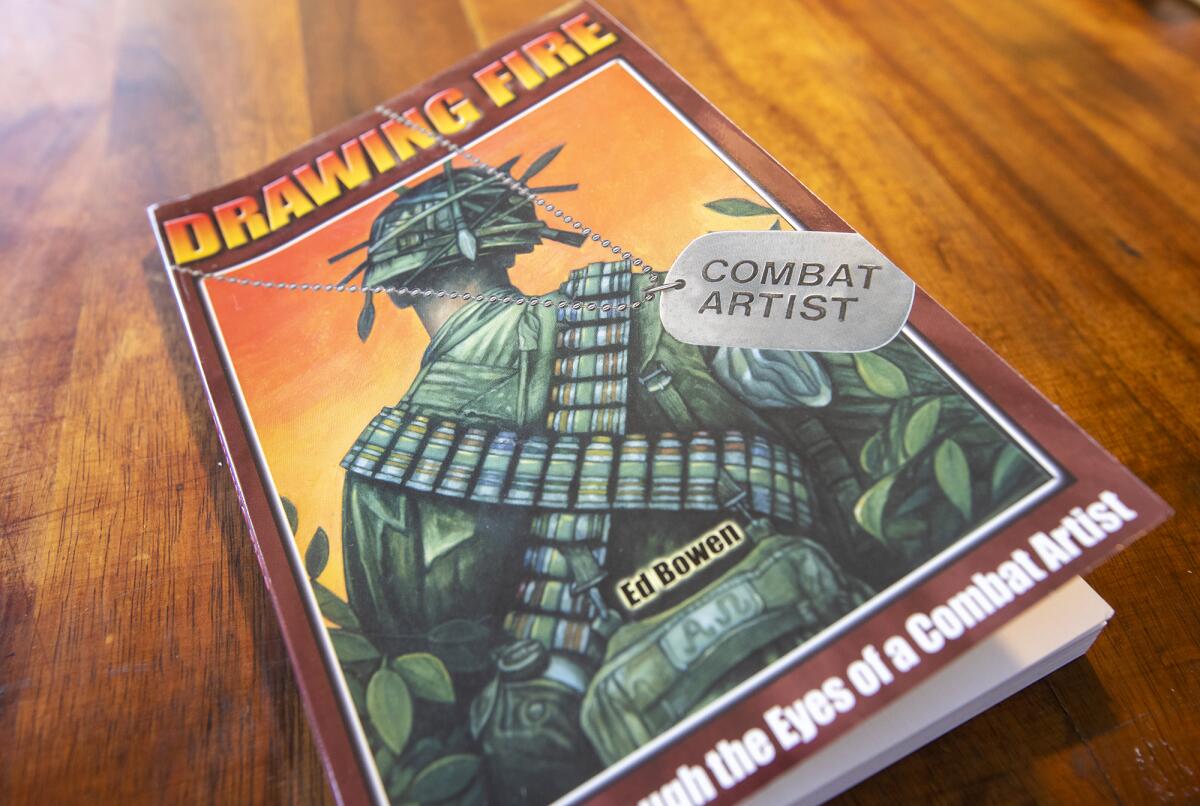
The U.S. Army began its own combat artist program in World War I, when artists were commissioned as captains in the Corps of Engineers and asked to highlight the activities of the American Expeditionary Forces. Their work would be delivered to the American Smithsonian Institution.
If traveling by helicopter through Vietnam in 1969 sounds like a joyride, Bowen will set the record straight. Assignments often took the artists to far-flung locales engaged in full throttle combat.
Serving at the rank of private first class, Bowen recalls one night spent on a rubber plantation in a metal shack as North Vietnamese soldiers overran the site, dropping mortars that shattered the walls of his meager refuge as troops stampeded the perimeter.
“I really had fear. I mean fear beyond fear,” he said, describing the attack. “I had a pistol, a .45, not an M-16. I carried that, but I couldn’t fire it — I was too nervous. I’m not a warrior. Plus, it was full of sand. I was in panic mode.”
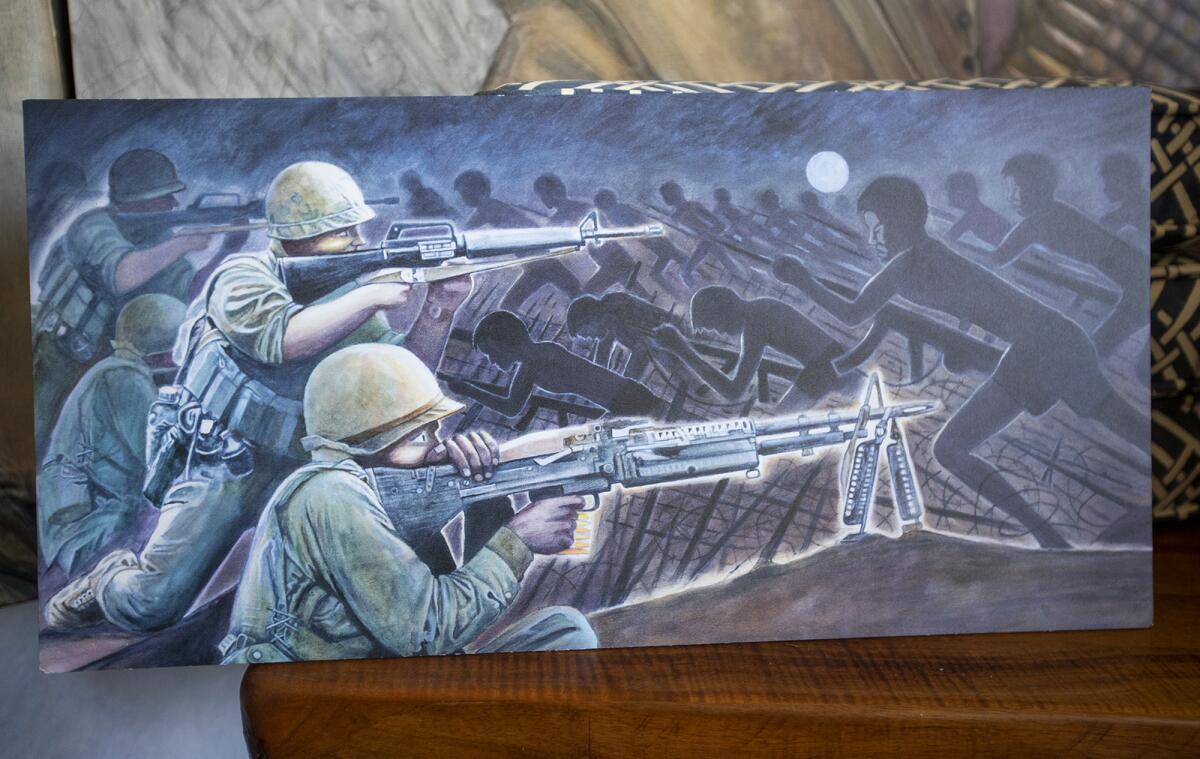
Now, decades later, Bowen continues to paint scenes and portraits inspired by the photographs he took. Several are on perpetual display in his living room, which he calls “my art zone.”
Three are on display at the O.C. fairgrounds’ Heroes Hall veteran museum, whose current “Through Their Eyes,” exhibit features art from veterans across conflicts. One, titled “Entrenchment” won third place in the juried show.
Heroes Hall Supervisor Carol Singleton, recently acquainted with Bowen through the exhibit, said many veterans turn to art to process their wartime experiences. The first time she saw the artist’s large-scale works, she was impressed. Now, talks about a future solo show are in the works.
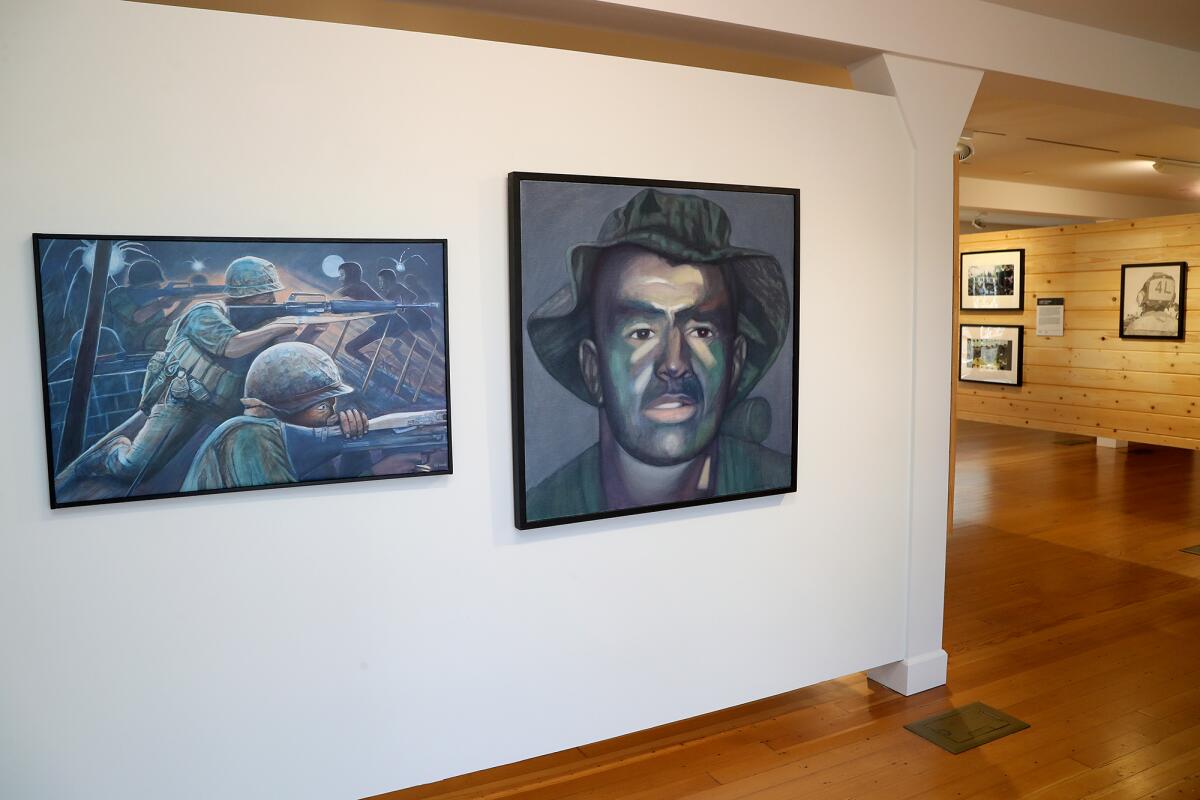
“When he came to drop off his pieces, they were incredible,” she recalled. “I was just astounded by his art — it’s amazing.”
Bowen’s longtime friend, former U.S. Marine Second Lt. Bill Peters, met the Orange County resident in 1975 at a Bible study session and has remained close ever since.
As Peters learned more about Bowen’s art background, he began sharing his own photos with the artist. In return, Bowen surprised him with canvases that brought his own sometimes harrowing service with the 1st Force Reconnaissance Company to vivid life.
“He was out there with the rest of us, taking the same chances. And sometimes it was more of a chance, because he’s manning his pencil and pad, sketching a combat mission,” he said.
The bond is a special one because of their shared experiences.
“With Vietnam veterans, it was different” from other wars,” Peters said. “We didn’t come home to a very great welcoming, so you were careful about who you brought into your life. But Ed is the real deal. He is a patriot who used his skills above and beyond the call of duty. And now, he is still capturing our generation.”
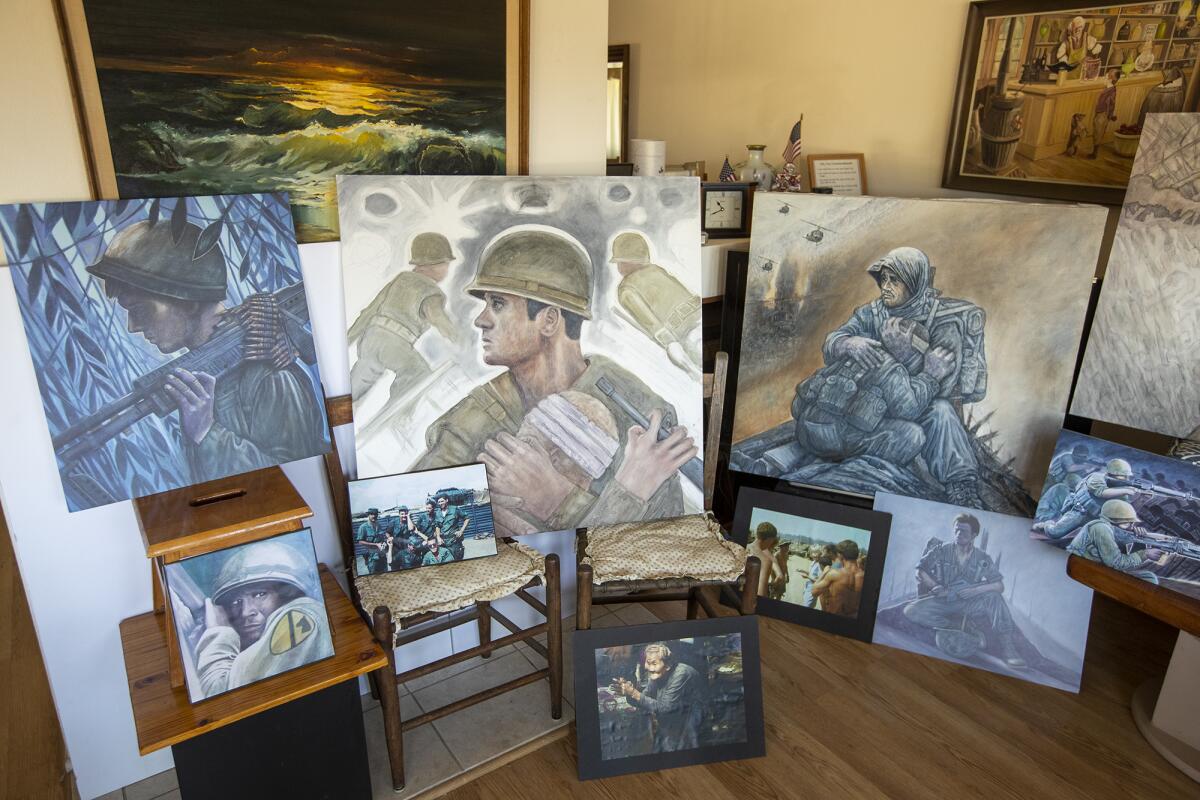
More to Read
Sign up for Essential California
The most important California stories and recommendations in your inbox every morning.
You may occasionally receive promotional content from the Los Angeles Times.














